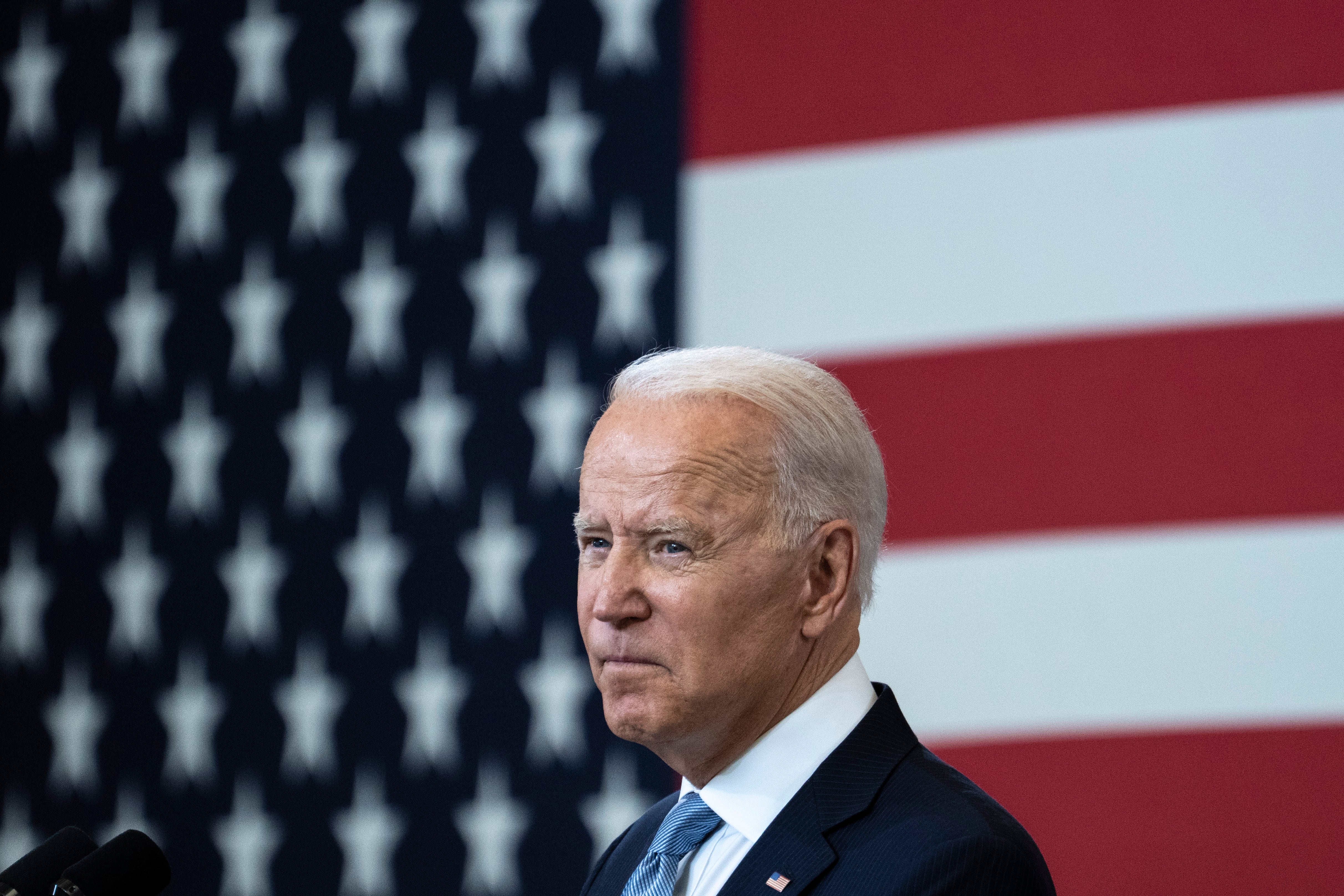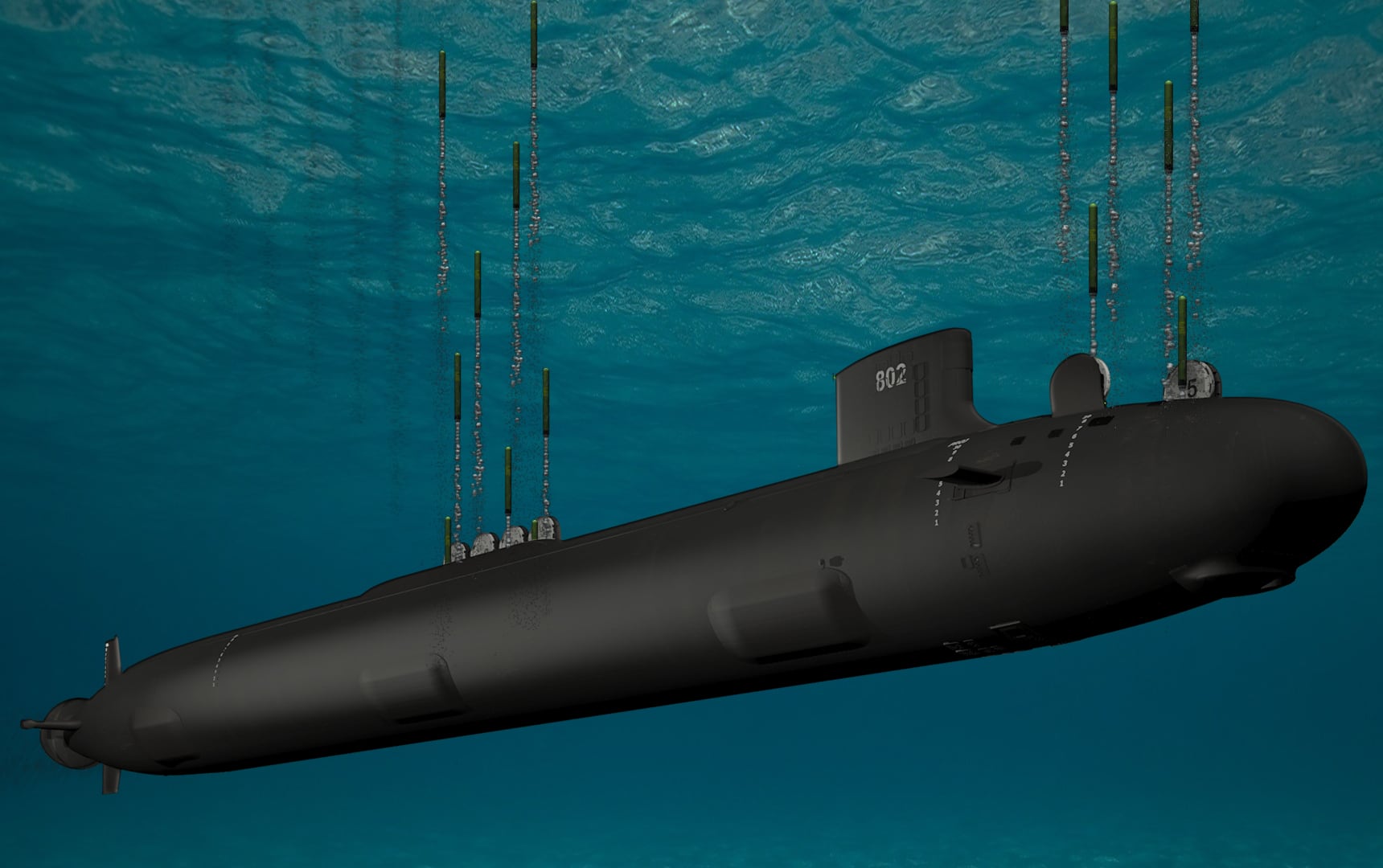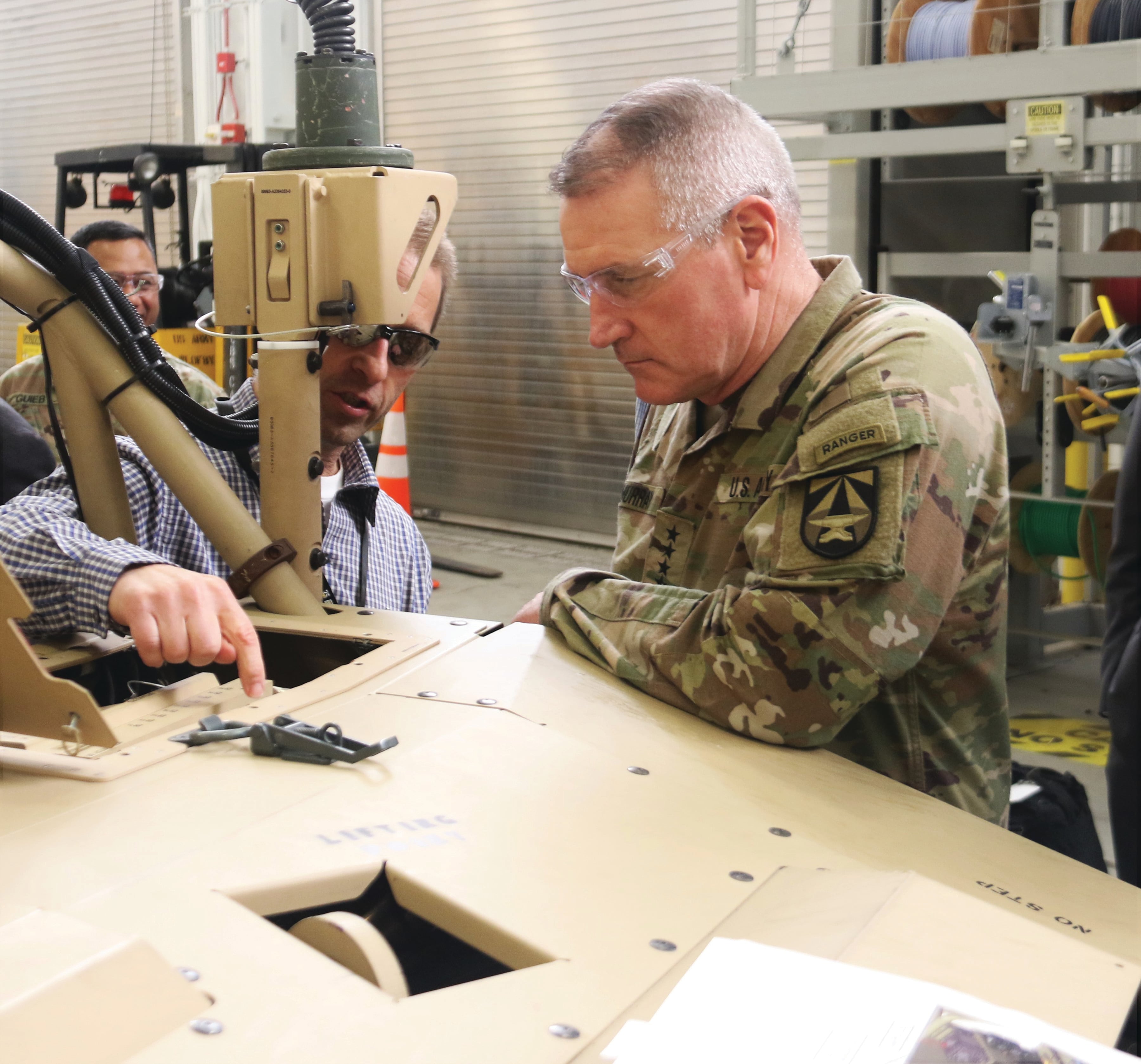WASHINGTON -- With an eye toward technological competition with China, Defense Secretary Lloyd Austin announced a lofty “call to arms” for the American businesses to work with the Pentagon, to “bring the American way of war to the 21st century” and together “meet this moment with all the innovation and ingenuity that America can muster.”
One problem? There are few Senate-confirmed acquisition officials at the Pentagon to welcome them.
Nearly a year into President Joe Biden’s administration, the U.S. defense industrial base is confronting a supply chain crisis, challenges implementing Biden’s vaccine mandate, congressional budget gridlock and unpredictability about how the Pentagon will use new authorities to quickly buy and field cutting-edge tech.
At the same time, only about half of the defense nominees Biden has sent to the Senate have been confirmed, and the president has yet to nominate officials for key acquisition and sustainment jobs. Where critical jobs are vacant, career civilians lead in their place.
To be sure, there are longstanding leap-ahead efforts at the Pentagon. In his speech at the Reagan National Defense Forum in California, Austin pointed to DARPA programs, small business grants and Pentagon-sponsored innovation hubs, all meant to “transform the way that we do business” and put advances in unmanned systems, nanotechnology and artificial intelligence in the hands of troops.
Still, defense advocates say the vacancies slow the U.S. military as it races to compete with China and undermine effective stewardship of billions of dollars of acquisition and sustainment programs across the military. Temporary office-holders often lack the authority and direction to carry out major bureaucratic reforms or take new approaches, they say.
“Congress has actually given quite a few authorities to accelerate acquisitions ― but the regulations to apply it, the leadership to go out and do it, is just not happening,” National Defense Industrial Association President Herbert “Hawk” Carlisle told Defense News.
As the Pentagon drafts its National Defense Strategy and builds its annual budget, which accounts for more than half of the government’s discretionary spending, its acquisition community ― typically a key voice for modernization ― will have limited representation by Senate-confirmed senior officials.
RELATED

Last month, Russia’s Navy said it successfully test-fired a prospective hypersonic missile, which is set to enter service next year. China recently tested a hypersonic weapon capable of partially orbiting Earth before reentering the atmosphere and gliding on a maneuverable path to its target and has been growing its nuclear arsenal dramatically.
“Obviously the department is responding to those, but if you had confirmed acquisition folks in place they could be taking steps to dig into programs to look for ways to accelerate efforts that are underway and bring senior-level management attention to bear to some problems right now,” said one former defense official who asked for anonymity because they are under consideration for a Pentagon job.
On Nov. 30, Biden nominated former Air Force acquisition chief Bill LaPlante for undersecretary for acquisition and sustainment, known as A&S, capping months of uncertainty after Defense Innovation Unit chief Mike Brown, first nominated for the job in April, withdrew his nomination. For industry, LaPlante cannot be confirmed fast enough.
“The primary conduit for industry with the Department of Defense is A&S, and the fact you don’t have these political positions filled is just terribly challenging for industry. You don’t get the guidance, the strategy and the leadership,” Carlisle said. “One of the key jobs of A&S is to telegraph to industry that government’s willing to take a little risk and not be so risk averse, because we all know you have to take risks to have that kind of agility and speed.”
Biden has not nominated a deputy undersecretary for research and engineering, deputy undersecretary for acquisition and sustainment, assistant secretary for acquisition or several other lower level acquisition officials in the services.
Among other key positions for Pentagon suppliers is undersecretary for research and engineering Heidi Shyu, who was confirmed by the Senate this summer. But the nominee for Army undersecretary, Gabe Camarillo; Army acquisition chief, Douglas Bush; and Air Force acquisition chief, Andrew Hunter, have been waiting to receive Senate floor consideration after clearing the Senate Armed Services Committee weeks ago.

’We need to move these people’
Senate Armed Services Committee leaders are mired in a protracted process of passing the annual National Defense Authorization Act, but Chairman Jack Reed, D-R.I. said Wednesday he plans to turn to nominees in the new year.
“We’ve obviously been focused distinctly on the NDAA, but we will shift quite dramatically and quickly to nominees,” Reed said. “There’s 11 that are waiting for confirmation, they’re critical roles in the Department of Defense and we need to get them filled. Everybody talks about how we have to get the best equipment into the hands of troops quickly, and that’s all acquisition and sustainment.”
The most visible obstacle right now is Missouri Republican Sen. Josh Hawley. Hawley has pledged to slow roll nominees for the State Department and Pentagon until Austin, Joint Chiefs of Staff Chairman Gen. Mark Milley, Secretary of State Antony Blinken and National Security Advisor Jake Sullivan resign over the administration’s chaotic exit from Afghanistan.
“I’m not concerned about the defense industry,” Hawley said when asked Tuesday about his blanket hold on nominees. “What I’m concerned about is getting leadership in the department that will actually steer this country in a safe direction.”
“Milley should be gone, Lloyd Austin should be gone, and I’m not going to consent to this being another Vietnam where the people who planned this get to stay around, get their fat pensions, and they’re lauded and feted, and later on it turns out they all lied to us, they did a terrible job and they don’t have any accountability,” he added.
RELATED

Technically, Hawley is objecting to confirming nominees by unanimous consent or voice vote, a course senators generally reserve for controversial nominees, but increasingly are using to negotiate with the executive branch. Senate Majority Leader Chuck Schumer, D-N.Y., could advance the nominations, but it would use scarce Senate floor time when the chamber is focused on Biden’s domestic agenda, judicial confirmations and other matters, including the NDAA.
The sentiment that these confirmation delays compromise national security, or at least effective government, is bipartisan.
Senate Strategic Forces Subcommittee Chairman Angus King, I-Maine., put the blame on Hawley. “Sen. Hawley is compromising national security. Period,” he said.
North Dakota Republican Sen. Kevin Cramer is awaiting multibillion-dollar decisions about replacing or overhauling intercontinental ballistic missiles based in his state, which will affect defense firms, local jobs and defense strategy for years to come. He said Schumer shares some responsibility for the delays.
“I get frustrated about it, and to the point it starts affecting national security, I get concerned about it,” Cramer, who sits on the SASC with Hawley, said of the holds. “We cannot move at the speed of China without people who can say yes to really important questions, and that frustrates me.”
The panel’s ranking member, Sen. Jim Inhofe, R-Okla., said he hasn’t tried to sway Hawley on the matter directly, “but he knows my feelings: We need to move these people and get them on the job.”

In need of a nexus
While there’s a lot of continuity between the Trump and Biden administrations when it comes to championing American manufacturers and the defense industrial base, the Biden administration needs to install its own top leaders to implement its goals, Ellen Lord, who served as the Trump administration’s acquisition and sustainment chief at the Pentagon, told Defense News. That’s especially true when it comes to changing the Pentagon’s culture to embrace its new acquisition authorities.
“Frankly, Congress has done a very good job over the last five years or so, of setting forth the capability to do acquisition more rapidly and be much more creative, yet compliant, about how it is done,” she said. “It takes an enormous amount of work to translate that into policy and implementation guidance, and then make sure the acquisition workforce is trained. That training is essential, and it can’t just be hypothetical.”
At the same time, federal contractors want guidance about the Biden administration’s vaccine mandate amid disagreements over how to implement it. Small and mid-sized contractors are hurt disproportionately when their workers want to leave rather than comply, according to Carlisle.
“Whether we like it or not there is some vaccine hesitancy in this country, and there are cases where companies are not going to be able to proceed with what they were contracted for because they’re going to lose their workforce,” he said. “It’s a workforce with security clearances, unique skill sets, program managers, some close to retirement ― and they’ll retire early or walk across the street to commercial [employers].”
RELATED

In the early weeks of the coronavirus pandemic, Lord’s office worked to keep the Pentagon’s suppliers in business, serving as a nexus for the top three defense trade associations, the White House and Capitol Hill. If confirmed by the Senate, her replacement could use a similar approach to try to solve vaccine mandate challenges, she said.
“Then you could have a cadence of communications, utilizing the industry associations, because you need some mechanism to echo and amplify the messages from the administration ― but just as importantly to hear the feedback on what some of the unintended consequences could be,” she said.
Another agenda item: Biden’s executive order to boost “Buy American” for federal contracting requirements sparked fears in U.S. defense firms of a backlash overseas against their products. And despite a carve-out for a number of allies, some partners saw a mixed message. A Senate-confirmed official could potentially find common ground among allies, the U.S. industrial base and Washington.
“I think Bill LaPlante is the kind of guy who can do that,” Carlisle said. “Friends, partners and allies being part of the supply chain is critically important, and maybe there’s a way to do this where a rising tide lifts all boats.”
Joe Gould was the senior Pentagon reporter for Defense News, covering the intersection of national security policy, politics and the defense industry. He had previously served as Congress reporter.








